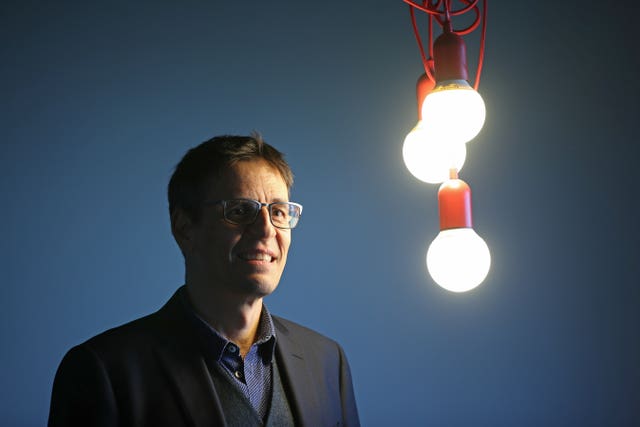A newly-crowned Nobel Laureate who was the first to discover an exoplanet missed the initial phone call telling him he had won the prestigious award.
University of Cambridge professor Didier Queloz is one of three scientists to win the 2019 Nobel Prize in Physics for their contribution to the understanding of the evolution of the universe and “Earth’s place in the cosmos”.
One half of the award was given to James Peebles, from Princeton University, US, “for theoretical discoveries in physical cosmology”.
The other half went jointly to Swiss pair Michel Mayor and Queloz “for the discovery of an exoplanet orbiting a solar-type star”.
However, Queloz missed the call from the committee, while he was busy in a meeting with colleagues, leaving it to a press officer from Cambridge to break the news to him.
Queloz said: “This morning I was just a Cambridge professor working with colleagues, and then all of a sudden my life changed entirely.”
He added: “I was in a scientific meeting, absolutely focused by the scientific meeting. I know it is the week of Nobel Prize, but I didn’t pay attention.
“To tell you the truth, people mentioned the Nobel Prize early on when we made the discovery 20 years ago, and after some time it has been said.
“In a way you get used to it, but also there are so many great discoveries elsewhere and so many programmes, so it tends to fade away from my mind, and I wasn’t expecting it all this morning.
Prof @DidierQueloz jointly wins the 2019 #NobelPrize for Physics for his work on the first confirmation of an #exoplanet – a planet that orbits a star other than our Sun. https://t.co/7qtFSo6qEz @NobelPrize @DeptofPhysics
— Cambridge University (@Cambridge_Uni) October 8, 2019
“I was not really in the mood, because I was in the mood for the scientific meeting.”
He laughed, saying he was in “shock”.
“The morning started very badly, I got problems with my bike and yesterday I had a flat tyre. It is just amazing what is going on today,” he added.
In October 1995, Mayor and Queloz announced the first discovery of a planet outside our solar system, an exoplanet, orbiting a solar-type star in the Milky Way.
Using custom-made instruments at the Haute-Provence Observatory in southern France, they were able to see planet 51 Pegasi b, a gaseous ball comparable with the solar system’s biggest gas giant, Jupiter.
This discovery started a revolution in astronomy and more than 4,000 exoplanets have since been found in the Milky Way.

Speaking at the Science Media Centre in London, Queloz said the discovery of exoplanets could lead to an answer to whether there is other life in the universe.
He said: “I can’t believe we are the only living entity in the whole universe, there are just way too many planets, way too many stars.
“The chemistry is universal. The chemistry that led to life has to happen elsewhere.”
He added that while it may take a thousand years to develop the technology to hunt for life on the distant exoplanets, it was “entirely realistic” it could be found closer to home in the next 30 years, and even more likely in the next 100 years.
“I do hope that this Nobel Prize will help give a further boost for this fascinating question when we think about life on another planet,” said Queloz.
He added that he was convinced of life on other planets and that scientists would not be searching for it, if they did not think it existed.
















